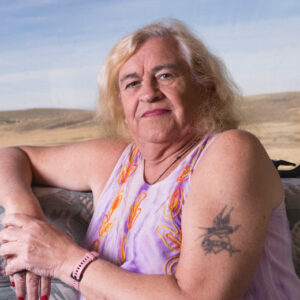 Planning for future medical care may not always be a straightforward process but for individuals from the LGBTQIA community, the process presents barriers that they and their families may face.
Planning for future medical care may not always be a straightforward process but for individuals from the LGBTQIA community, the process presents barriers that they and their families may face.
LGBTQIA people often rely on caregivers who are not legally recognized, such as partners and families of choice. Because of this, these caregivers can be excluded from decision-making of a loved one’s medical care and end-of-life plans, unless there are specific legal arrangements in place. This is especially important because if an LGBTQIA individual becomes incapacitated or dies without certain documents in place, state law gives decision-making authority to the “next-of-kin”—either a legally recognized spouse or blood relative. This could result in surviving LGBTQIA partners or other loved ones being unable to act as healthcare proxy to advocate for their loved ones wishes or carry out funeral or burial wishes as well as other consequences.
Many LGBTQIA people believe that telling a healthcare professional about their sexual identity would change their interactions or quality of treatment, so many hide their relationships. This can lead to healthcare workers excluding key individuals from their loved one’s care. Other factors that can impact end-of-life care include whether an LGBTQIA person lives alone or if they’re socially isolated. Some bereaved LGBTQIA partners and spouses experience less support during the death of their loved one. They complained of being shut out of the care process and ignored.
Click on the links below for additional resources: